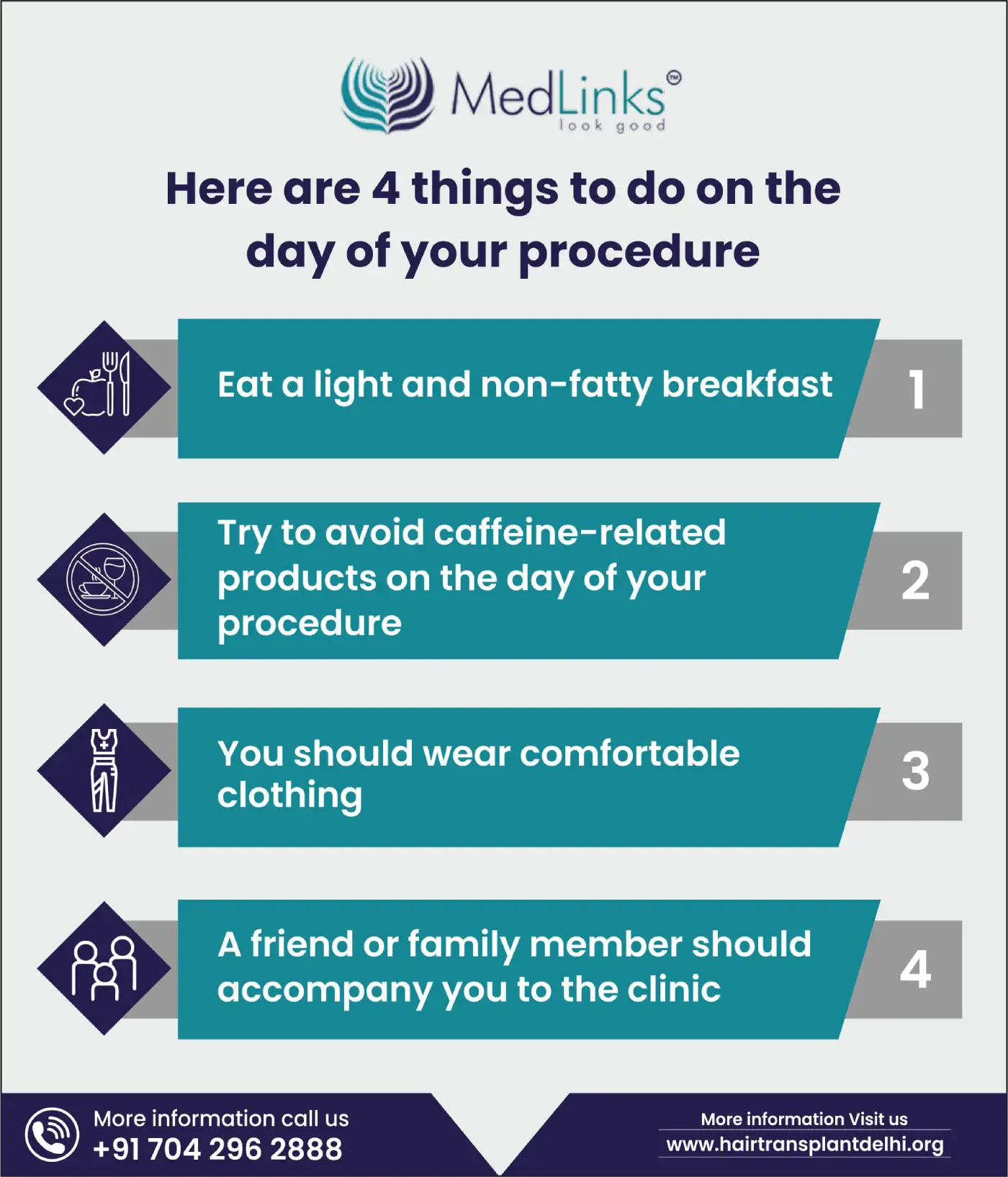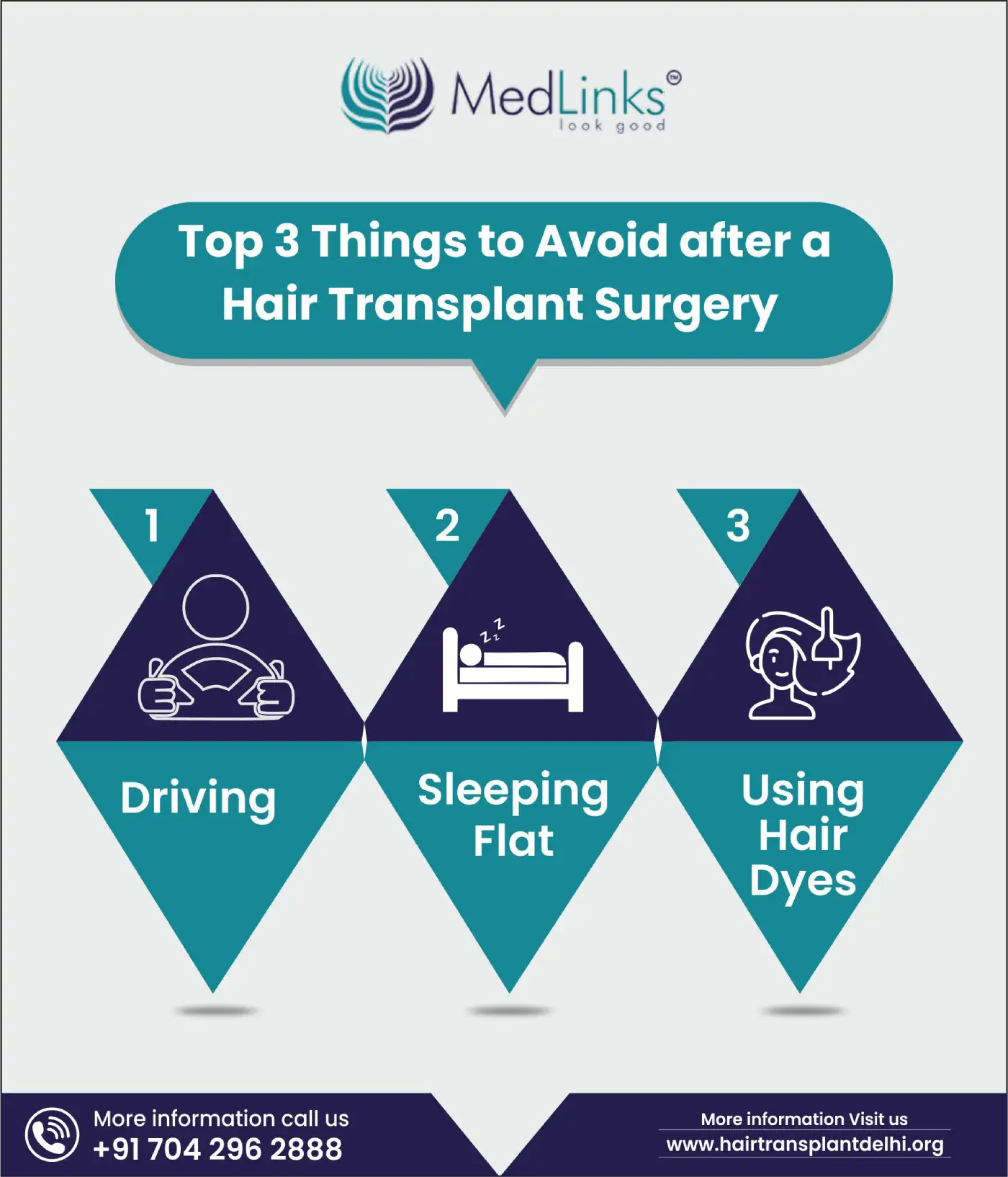- Home
- About Us
- Hair Transplant
- Hair Loss
- Medical Treatment
- Patients Gallery
- Our Patients
- Blog
- Contact Us
- Hair Transplant Cost
- Book an Appointment
- Brochure

Hair transplantation is one of the most effective treatments available to patients struggling with hair loss. In India, the popularity of hair transplant procedures is gaining increasing popularity. However, it is essential to know about precautions associated with hair transplant before and after.
A hair transplant is a surgical procedure that treats baldness in men and women. In this procedure, the hair follicles are transferred from the donor site to the receptor site. With steady technological advances, hair transplant procedures are on the rise. It can reverse hair loss to an extent where you will not remember that you were bald. Here are some essential things to do before and after a hair transplant.
In India, a hair transplant procedure is an excellent way to address baldness or thinning hair. The procedure can be customised based on your needs and relies on various factors like scalp condition, age, etc.
Numerous hair transplant surgeons recommend patients to adhere strictly to the hair transplant before and after instructions. If you are experiencing the following symptoms, undergoing a hair transplant procedure would be ideal.
Must Read: Cost of Hair Transplant in India?
Proper and thorough research is imperative before and after a hair transplant is necessary for success. In most cases, your surgeon will recommend you pursue rigorous activities 7 days after hair transplant. If you have lingering doubts, it is essential to sort them out with your consultant surgeon. Here are some essential things to consider before undergoing a hair transplant.
1. Selecting the Right Surgeon and Technique
The experience and expertise of the surgeon are necessary for the successful outcome of a hair transplant. You should research the surgeon’s success rate before undergoing the procedure.
2. Follicular Unit Extraction (FUE)
It is a precise procedure that involves extracting the hair follicles from the donor site and transferring them to the recipient site.
3. Follicular Hair Transplantation (FUT)
In FUT, the patient’s hair is transplanted in naturally occurring groups of 1 to 4 hair follicles. You should consult your surgeon before undergoing this procedure.
Perfect-I is the most advanced version of FUE hair transplant. In the Perfect-I procedure, your surgeon would be able to facilitate instant implantation of the extracted follicles.
To derive maximum benefits from hair transplant procedures, you should be aware of post hair transplant care.
One week before the hair surgery, you must stop consuming the following medicines.
If you are taking any other medications, you should tell your surgeon about them. You shouldn’t drink or smoke one week before the hair transplant procedure. Smoking and drinking can decrease blood flow to your scalp. It also adversely affects your body’s natural healing process.
Being aware of the instructions related to FUE before and after will ensure a faster recovery. Note that FUE hair transplant in India has a 98% success rate. However, this success rate depends on how you adhere to the instructions before and after the procedure.
In most cases, your surgeon will ask you to undergo regular blood screening tests. You may have to undergo random blood sugar tests, tests that show clotting time, etc. All these blood tests are simple and conducted to ensure that there are minimal complications post hair transplant.
Here are some essential things to follow the night before the hair transplant process.

Here are the things to do on the day of your procedure.
After the completion of the procedure, the recovery time varies between individuals. For some individuals, it can take two weeks. On the contrary, for others, the recovery time may be a month. Typically, the surgeon will place a bandage on the treated area and a headband on the forehead. Here are some general instructions that apply after a hair transplant.
Patients must wash the donor and recipient area two days after the procedure for effective recovery. After the second day, you must pour some water over the donor and recipient sites a few times. Always refrain from scrubbing the area vigorously.
Refrain from using a towel to dry your hair. In most cases, your surgeon will prescribe a mild and antimicrobial shampoo. You should wash the recipient site with this shampoo. It is an integral step in hair transplant aftercare as it ensures the effective removal of scalp flakes.
Must Read: When to wash hair normally after a hair transplant?

It is essential to know what to avoid after a hair transplant surgery. Here are some top things that you should avoid after undergoing a hair transplant procedure.
Driving
It is essential not to drive 24 hours after the surgery. Surgeons often use strong sedatives during the transplant procedure that can affect your brain’s reaction time.
Sleeping Flat
To mitigate the risk of swelling, you should never sleep flat. It is crucial to sleep with your head elevated for the first few days after the treatment. Surgeons can recommend you to sleep with your head elevated for an entire month.
Using Hair Dyes
You can’t colour or dye your hair for at least three months after the procedure. Hair dyes may contain allergens and other chemicals that can trigger severe allergic reactions.
Every individual responds differently to hair transplantations. However, adhering to the right before and after hair transplant care instructions can boost the overall recovery rate. You should try to adhere to all the before and after-care instructions to boost the recovery rate.
1. What Are The Hair Transplantation Process to Mitigate Hair Loss or Thinning?
Hair transplantation is an ideal solution to hair loss & thinning problems. A surgeon conducts either FUT or FUE to reduce hair loss issues. FUT or Follicular Unit Transplantation is performed in a shorter time span. On the other hand, FUE or Follicular Unit Extraction is strip harvesting. This process uses harvesting one hair follicle.
2. Which Hormones Are Responsible for Hair Loss in Women?
If the levels of oestrogen and progesterone fall, androgens (male hormones) will increase. As a result, the hair becomes thinner as hair follicles shrink during or after menopause. Hair grows slowly & falls out speedily in such instances. Another cause of hair loss in women is DHT (or dihydrotestosterone).
3. Which Hormones Cause Hair Loss in Men?
Dihydrotestosterone can significantly cause hair loss and thinning in men (and even women). It is there in the hair follicles, skin, and prostate. Its actions and hair follicles’ sensitivity to DHT cause hair loss. All in all, DHT acts in the prostate.

Dr. Gaurang Krishna

Copyright © 2025 Medlinks. All Rights Reserved.
Disclaimer:The content published on this website(hairtransplantdelhi.org) is meant to spread awareness and educate the concerned patients regarding baldness and hair transplants as well as the treatment options available for baldness and hair transplant treatment in Delhi India. Any information on the website shall not be regarded as a prescription from a professional dermatologist. We recommend visiting a dermatologist in person for the right diagnosis and the treatment for any hair issues. We do not guarantee specific results as the treatments and the results vary from person to person.